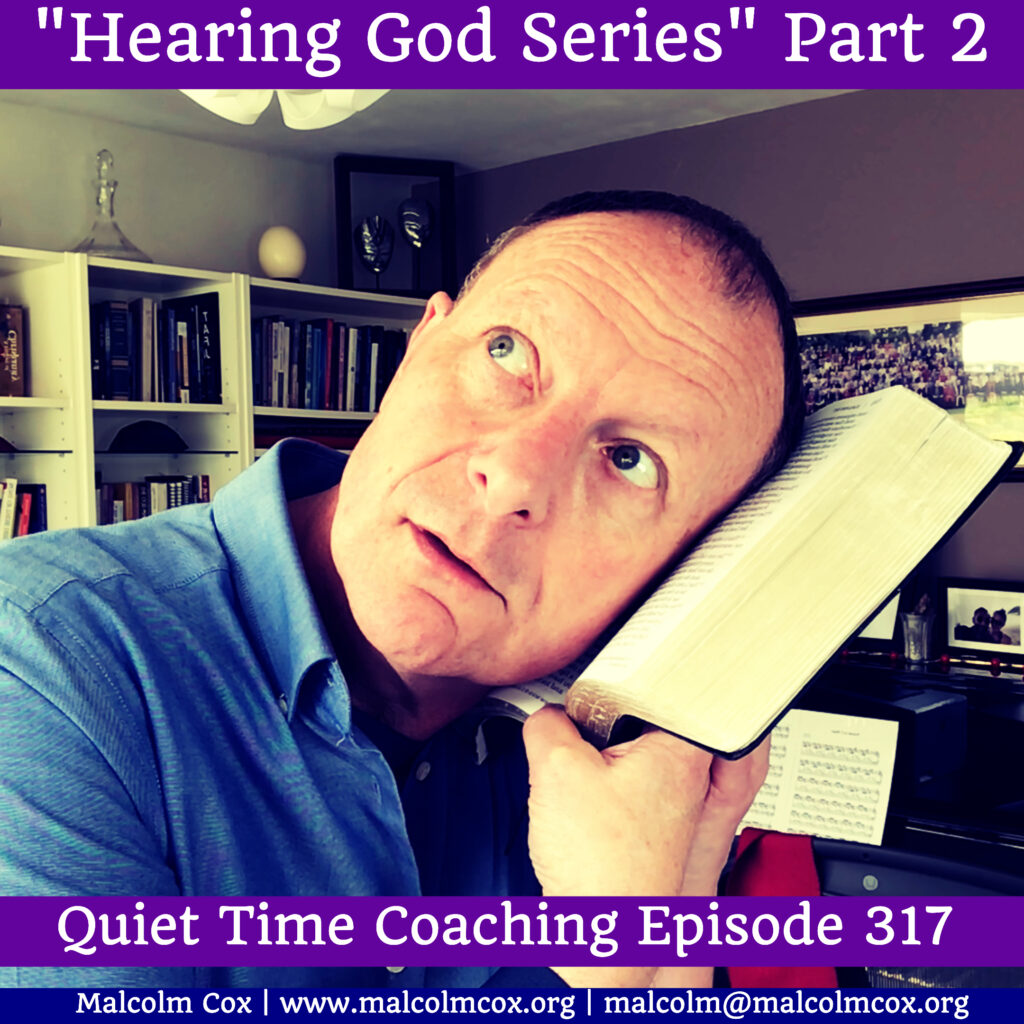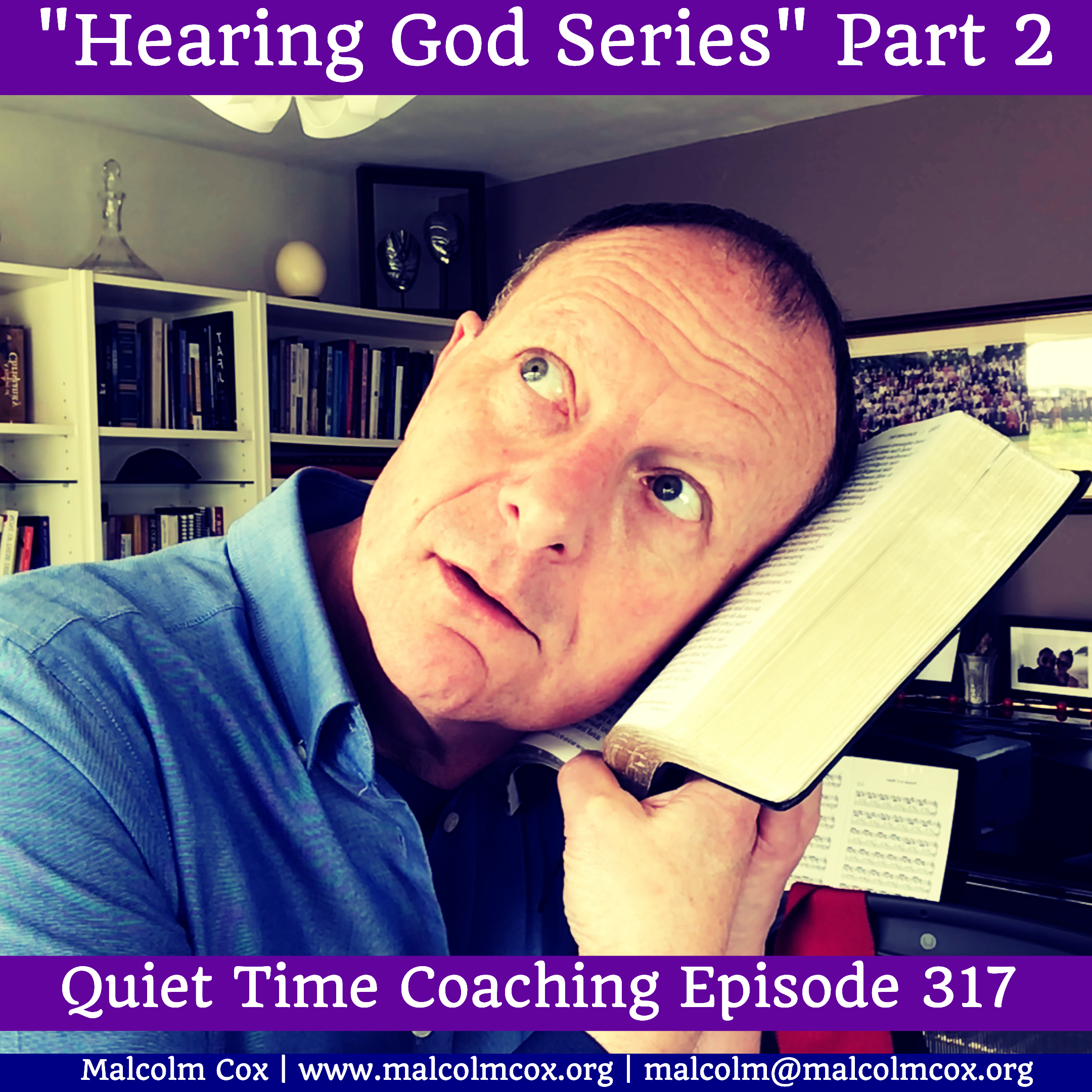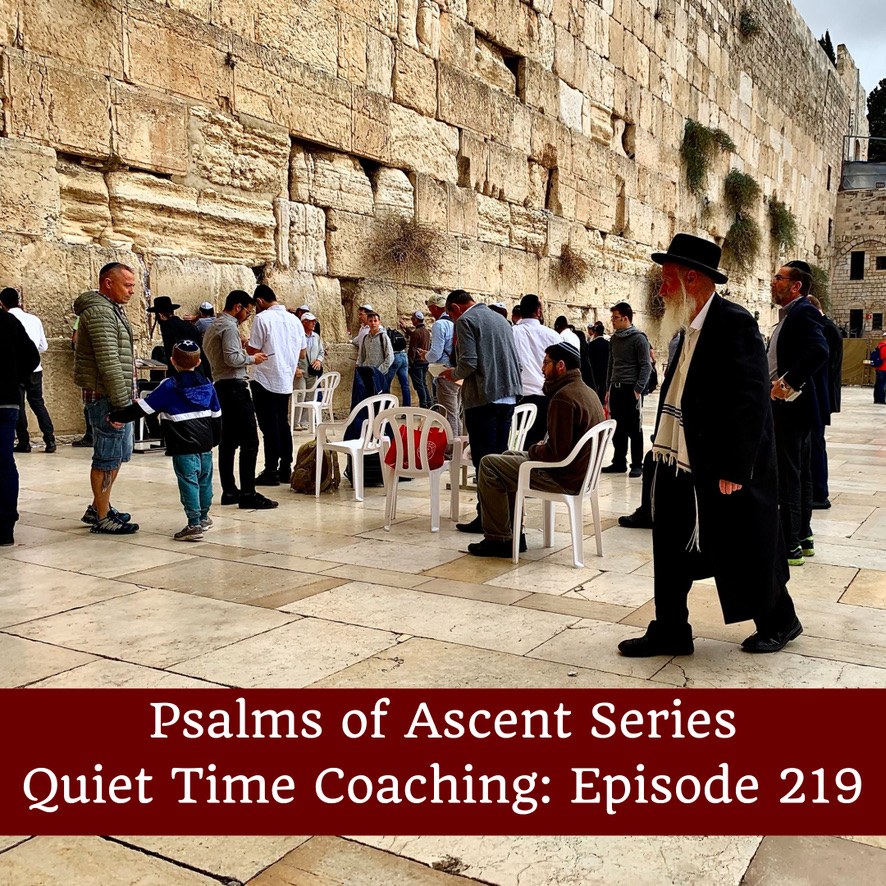Quiet Time Coaching Episode 317

Hearing God: Developing a Conversational Relationship with God; Dallas Willard
Recently God has made me listen more as a result of losing my voice after an allergic reaction to something I ate.
Today we look at Chapter 1.
– 1. A paradox about hearing God
– Learning to hear God’s voice makes us more than someone who has knowledge.17
– The ongoing conversation
– He references Adam & Eve, Enoch and Moses as examples of people with an ongoing conversation with God. However, I’m not sure that is precisely true. That might be an over literal understanding of Enoch’s relationship with God. In any case, we have very little detail.
– The UFO syndrome
– We might sound a bit wacky if we start talking about hearing God.
– “Why is it”, comedian Lily Tomlin asks, “that when we speak to God we are said to be praying but when God speaks to us we are said to be schizophrenic?”
Is. 58:9 Then you will call, and the LORD will answer; you will cry for help, and he will say: Here am I.
“If you do away with the yoke of oppression, with the pointing finger and malicious talk, 10 and if you spend yourselves in behalf of the hungry and satisfy the needs of the oppressed, then your light will rise in the darkness, and your night will become like the noonday.
11 The LORD will guide you always; he will satisfy your needs in a sun-scorched land and will strengthen your frame. You will be like a well-watered garden, like a spring whose waters never fail.
– Abiding include conversing
– Jesus makes his home with his followers, John 14:23 “Jesus replied, “Anyone who loves me will obey my teaching. My Father will love them, and we will come to them and make our home with them.”
– “The Spirit who inhabits us is not mute, restricting himself to an occasional nudge, a hot flash, a brilliant image or a case of goosebumps.” 22
– How can we abide unless there is communication?
John 15:15 I no longer call you servants, because a servant does not know his master’s business. Instead, I have called you friends, for everything that I learned from my Father I have made known to you.
Heb. 13:5 Keep your lives free from the love of money and be content with what you have, because God has said, “Never will I leave you; never will I forsake you.”
Heb. 13:6 So we say with confidence, “The Lord is my helper; I will not be afraid. What can mere mortals do to me?”
Matt. 28:20 and teaching them to obey everything I have commanded you. And surely I am with you always, to the very end of the age.”
– One-to-one with God
– God cares for his sheep individually, Psalm 23
– “The biblical record always presents the relationship between God and the believer as more like a friendship or family tie than like merely one person is arranging to take care of the needs of another.” 23
– The paradox
– Direct communication with God is in Christian history and in Scripture. Yet it is almost a taboo topic amongst Christians.
– First steps toward a solution
– If we believe in personal communication we must not neglect this area
– Three general problems
– 1. Gods communications come to us in many forms
– 2. We may have the wrong motives
– 3. We misconceive the very nature of our heavenly Father and of his intent for us. God is not our buddy
– “The development of character, rather than direction in this, that, and the other matter, must be the primary purpose of the father. He will guide us, but he won’t override us. That fact should make us use with caution the method of sitting down with a pencil and a blank sheet of paper and write down the instructions dictated by God for the day.”
– A conversational relationship
– We are looking for a mature relationship.
– We follow because we know his voice, When he has brought out all his own, he goes on ahead of them, and his sheep follow him because they know his voice. Jn 10:4
Next week we will go on to look at chapter 2 of the book which is titled “Guidelines for hearing from God”.
Please add your comments on this week’s topic. We learn best when we learn in community.
Do you have a question about teaching the Bible? Is it theological, technical, practical? Send me your questions or suggestions. Here’s the email: [malcolm@malcolmcox.org](mailto:malcolm@malcolmcox.org).
If you’d like a copy of my free eBook on spiritual disciplines, “How God grows His people”, sign up at my website: http://[www.malcolmcox.org](http://www.malcolmcox.org/).
Please pass the link on, subscribe, leave a review.
“Worship the LORD with gladness; come before him with joyful songs.” (Psalms 100:2 NIV11)
God bless, Malcolm



